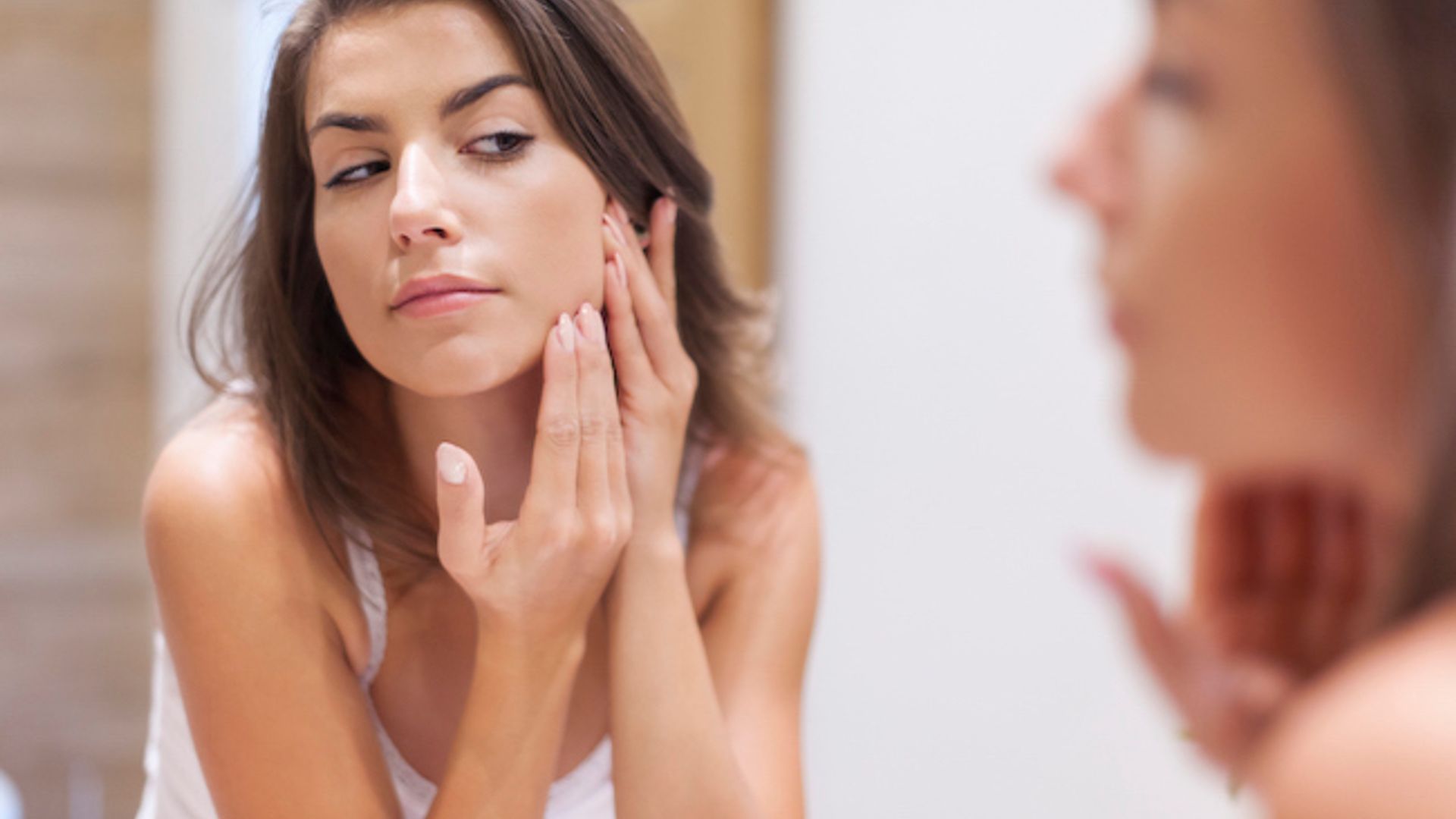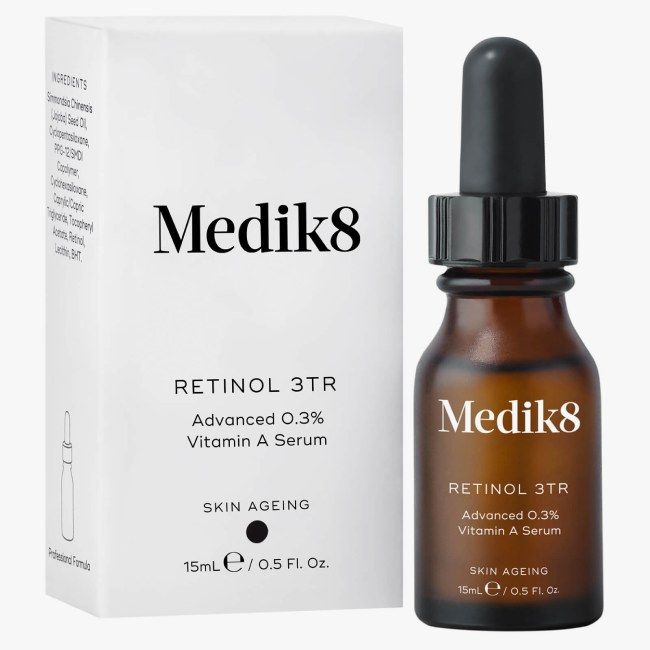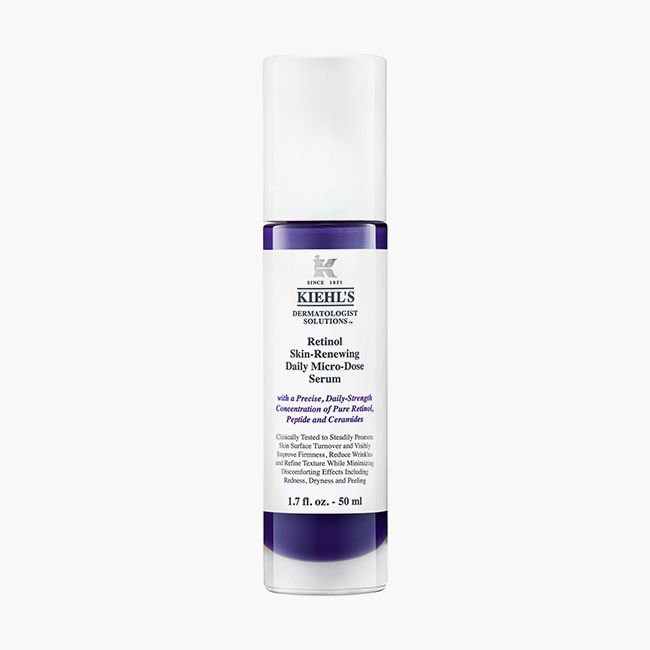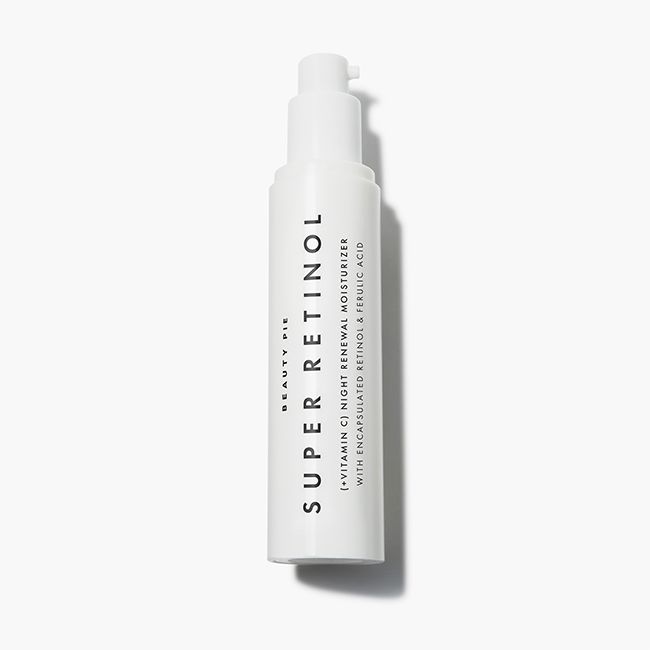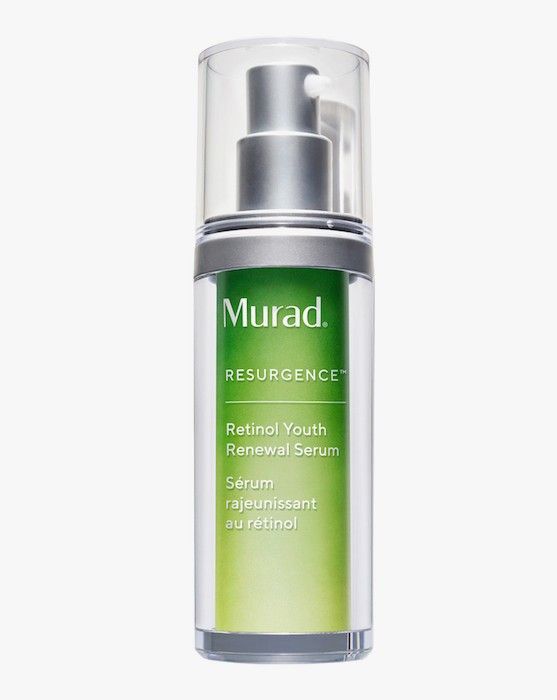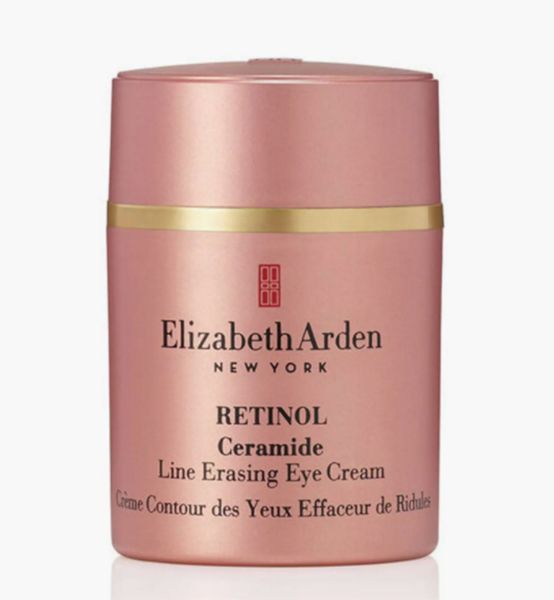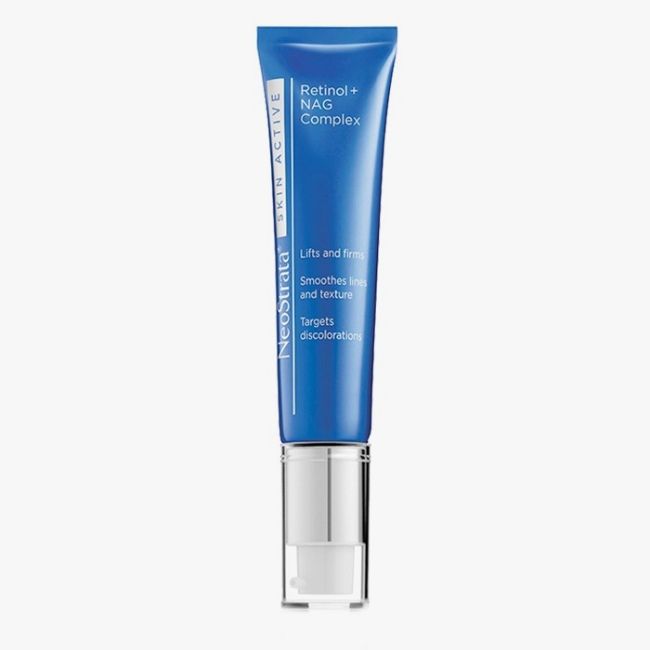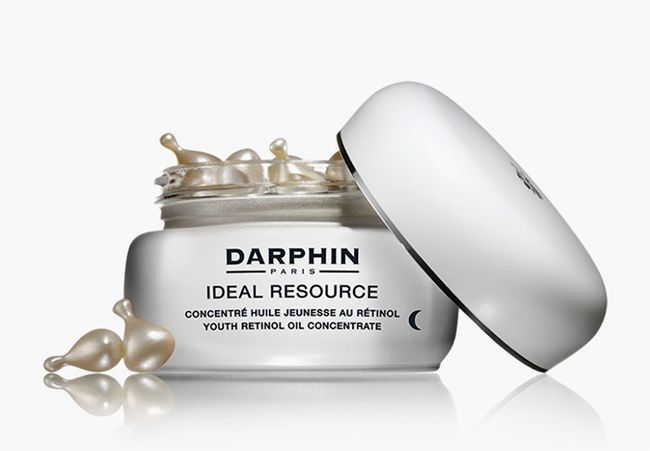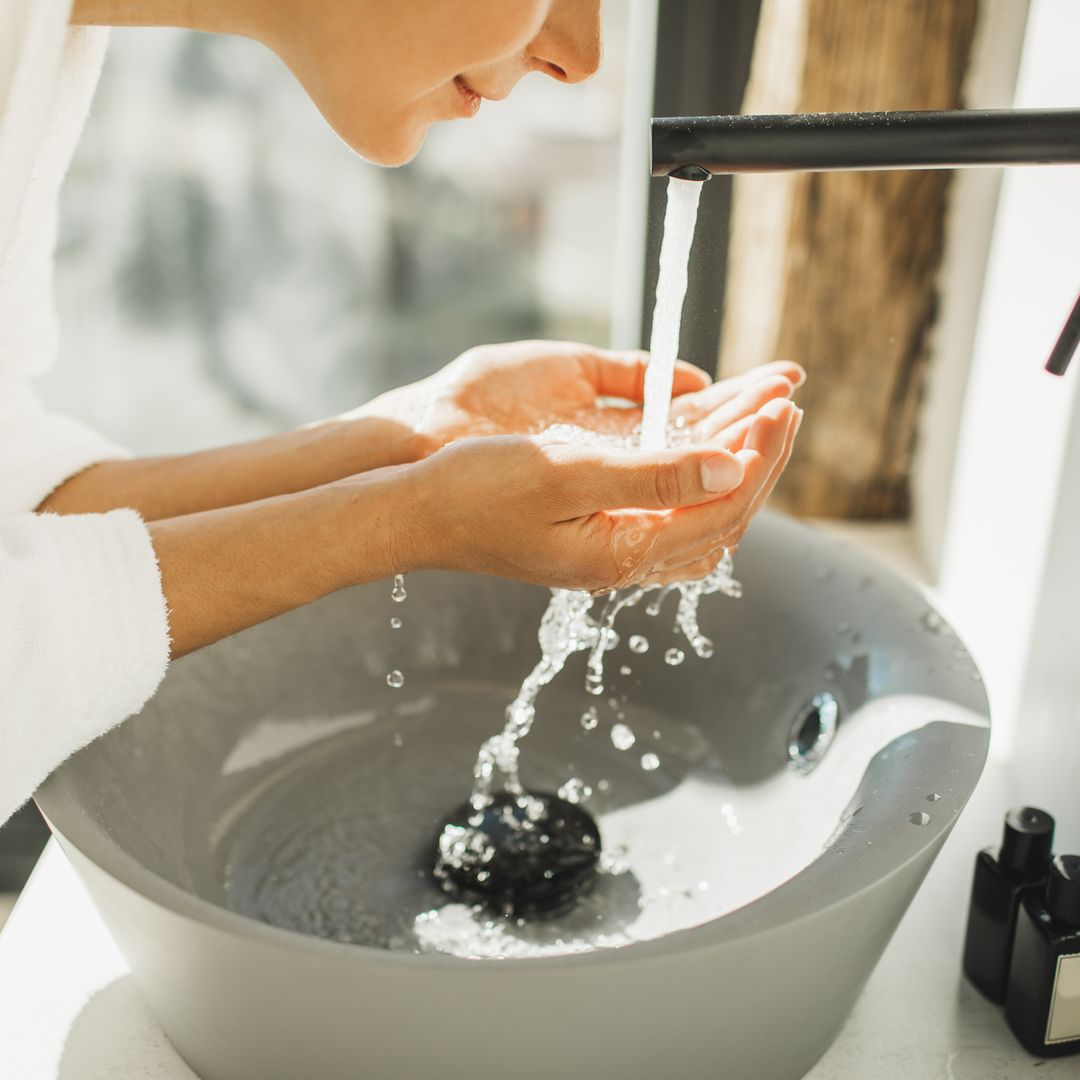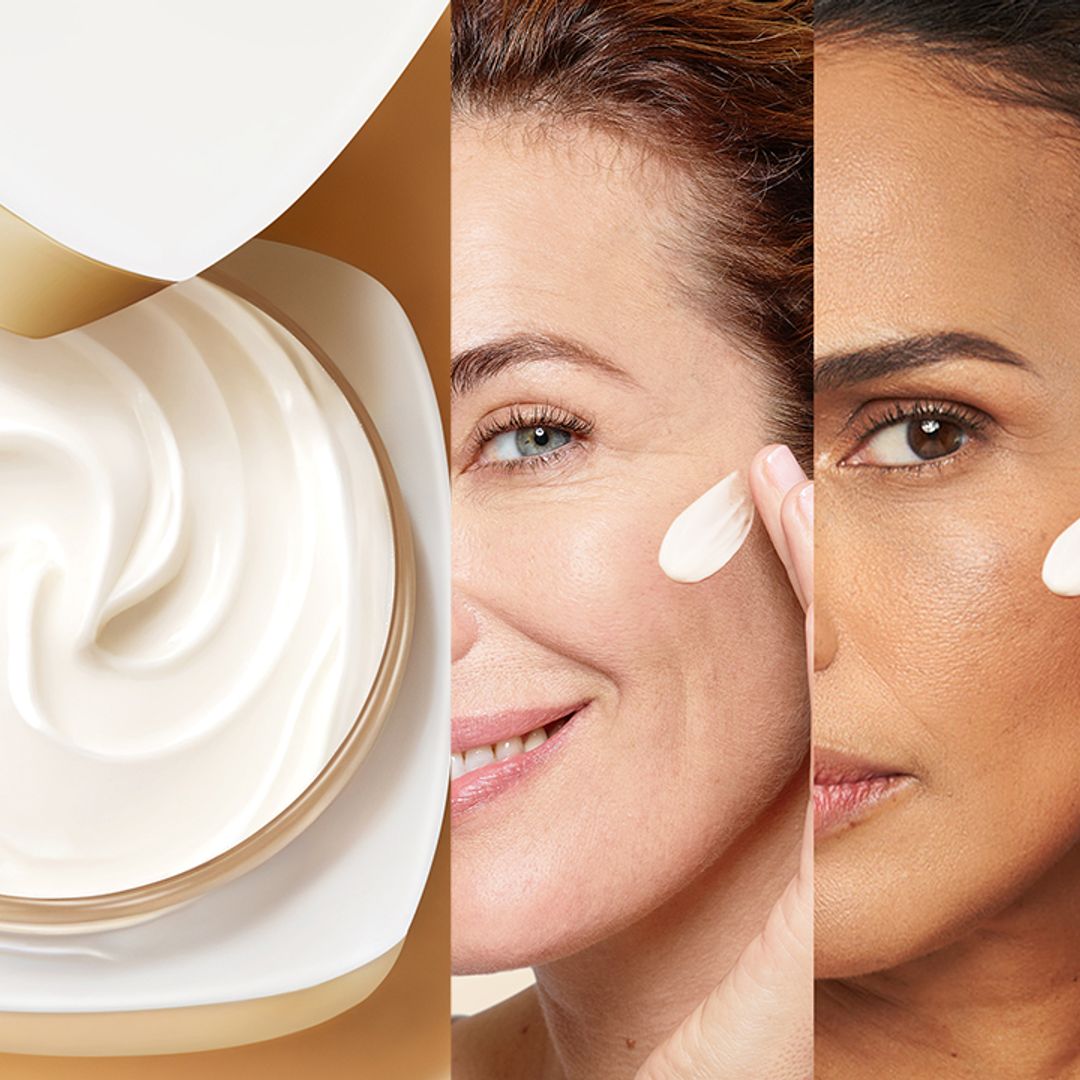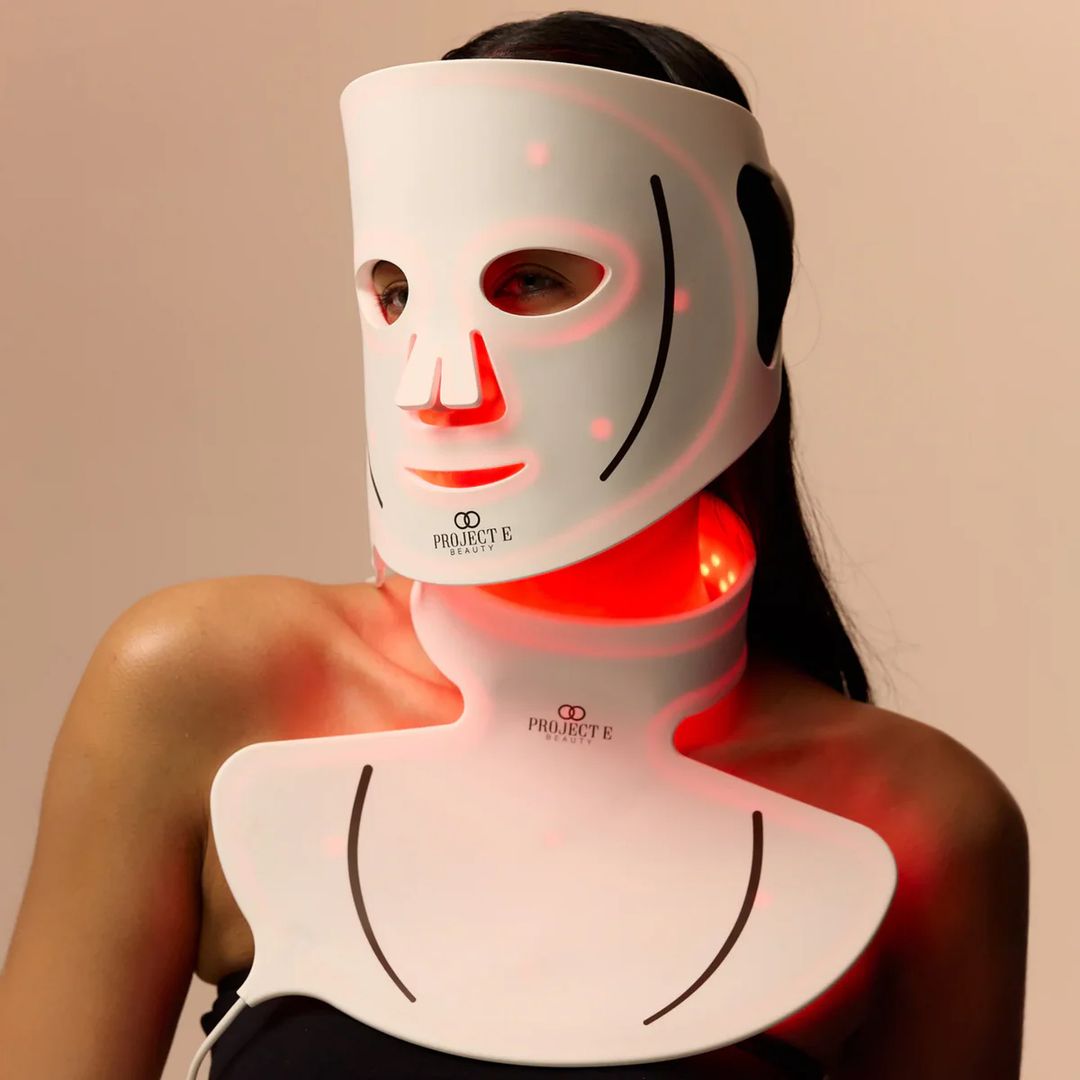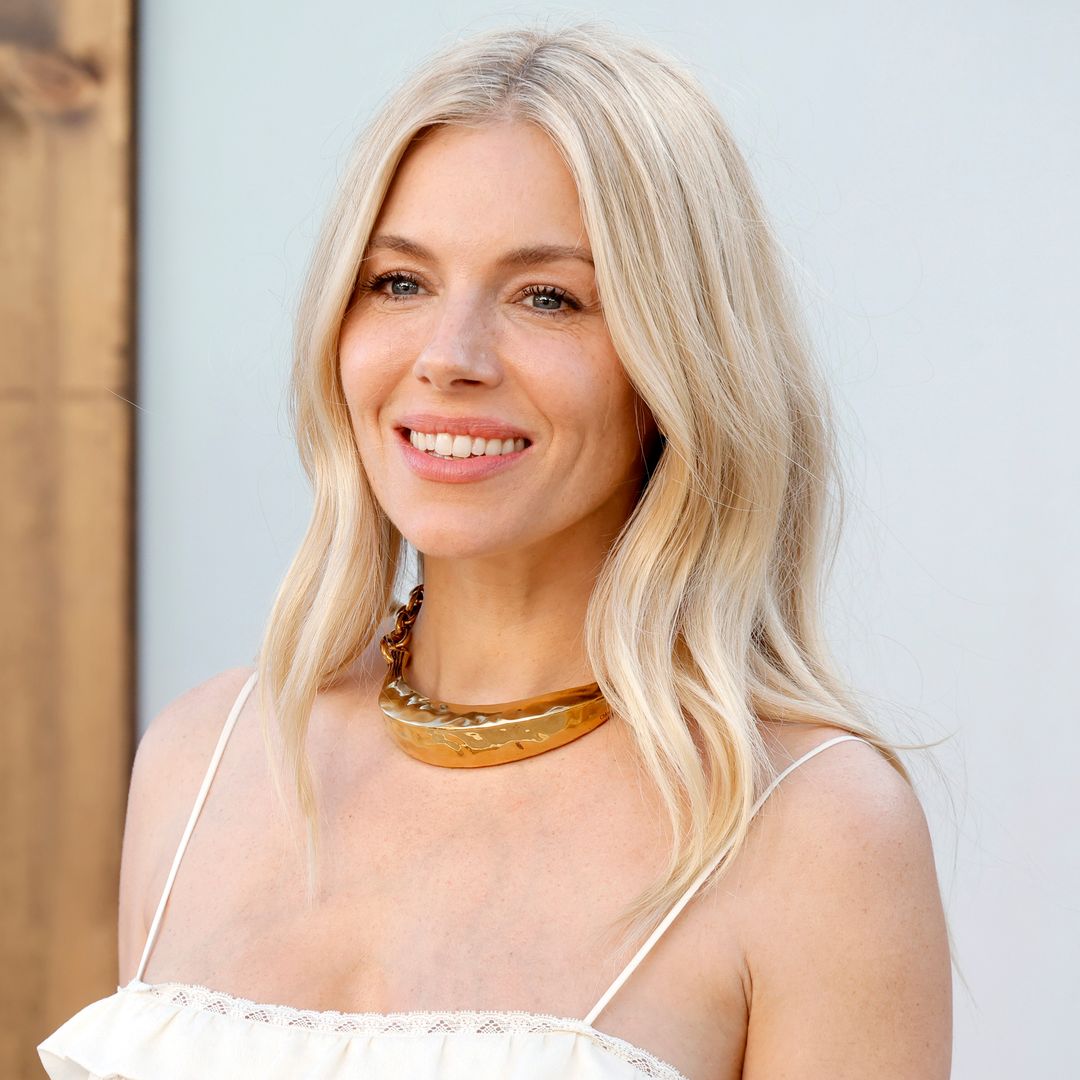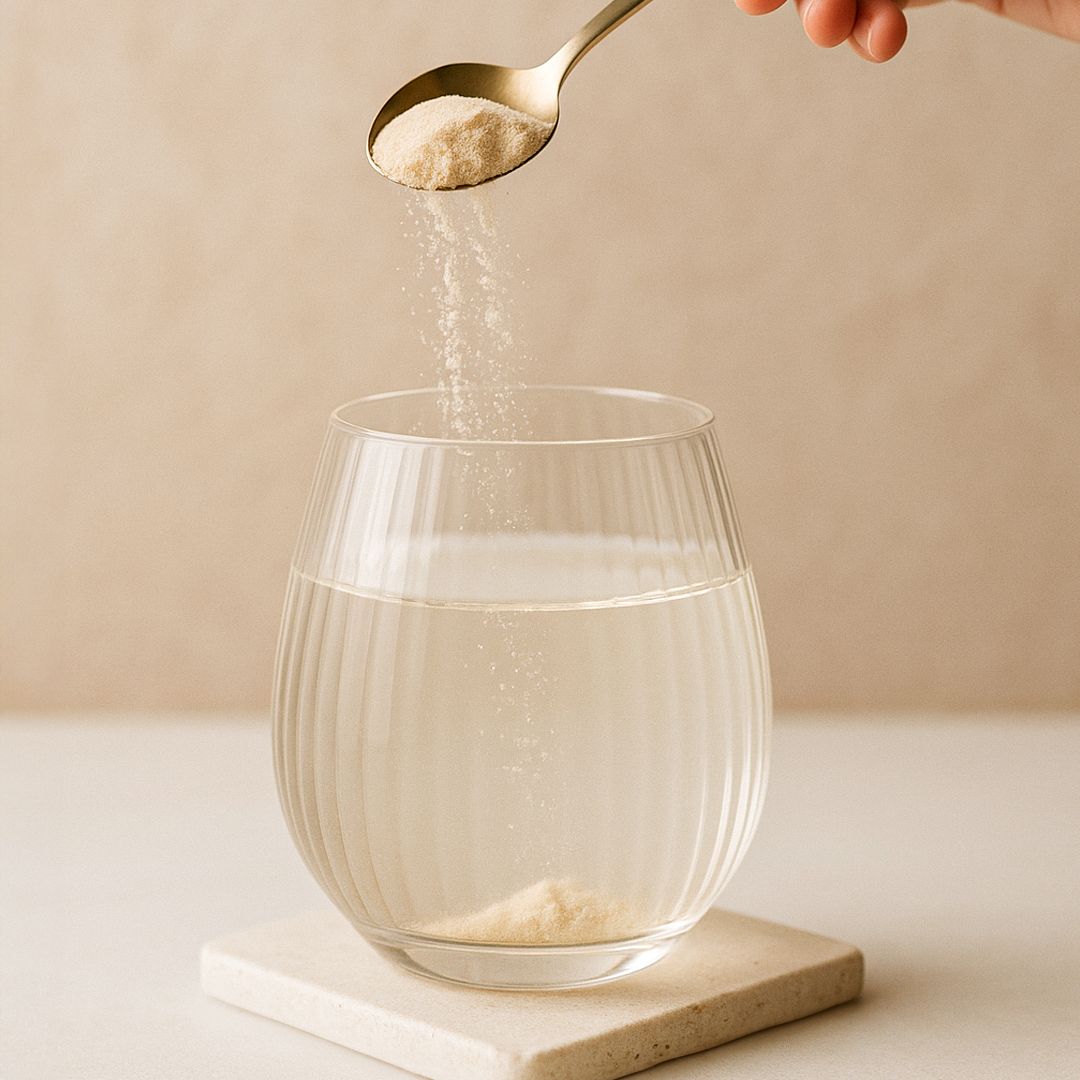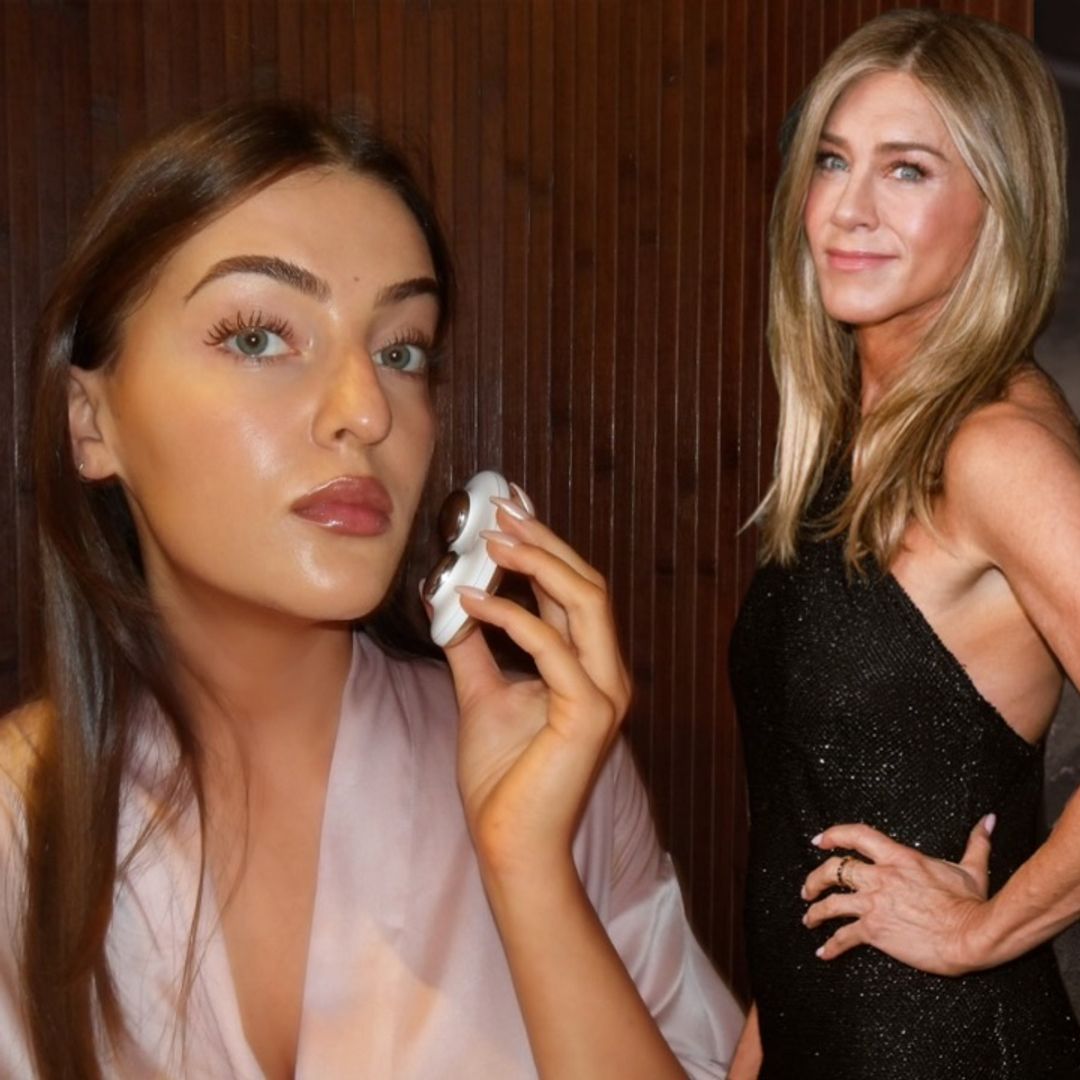Retinol (one type of ingredient which comes under the wider term of retinoids) has been touted as the ultimate wrinkle-busting skincare ingredient and is adored by beauty experts the world over.
It's no wonder then, that in recent years - and particularly during the coronavirus lockdown - demand for the miracle elixir has only been on the rise. But what exactly are retinols and retinoids, and how do they work? We spoke to Dr Anjali Mahto, consultant dermatologist at the Cadogan Clinic and expert facialist Kate Kerr to find out what they are, who they're best for and how they work.
What are retinoids?
"Retinoids are a class of compounds derived from vitamin A, which is commonly used in skincare," says Dr Mahto. "Scientific studies (mainly on tretinoin - which is generally a prescription-only retinoid) show that they can reduce the appearance of fine lines, wrinkles, and pigmentation after 12 weeks of use."
Retinoids are a Vitamin A-derived skincare ingredient
What is retinol?
Retinol is simply a type of retinoid - which is generally a little more gentle on the skin.
"There are many different types of retinoids which contributes to the confusion - these include retinyl esters, retinol, retinaldehyde, adapalene and tretinoin, to name but a few," says Anjali.
"They are all slightly different chemical compounds. Retinyl esters, retinol and retinaldehyde are available over the counter and are weaker than tretinoin."
MORE: How to do a lifting facial massage at home
What does retinol do?
Though an effective plumping agent on more mature skins, or those that have aged prematurely by the sun, retinoids are also extremely effective on those suffering with breakouts. "They act as an exfoliant and improve skin cell turnover," says Dr Mahto. "So they are particularly effective in people with sun-damaged skin, or those suffering with acne.
"They also help improve the appearance of fine lines, wrinkles, age spots and skin pigmentation by increasing the production of collagen and stimulating the blood vessels in the skin," she adds.
KATE RECOMMENDS: Medik8 Retinol 3TR Serum, £29, Look Fantastic
SHOP NOW
What will happen when I use it?
Kate says: "It makes your skin peel. When you first begin retinol it speeds up cell turnover, which means that the cells are moving through to the surface of the skin more quickly."
Retinol Skin-Renewing Daily Micro-Dose Serum, £62, Kiehl's
SHOP NOW
"Effectively, the skin goes into panic mode and initiates inflammation to repair the so-called problems. Redness, burning, stinging and shedding is all normal and is expected. You're creating new tissue so it pushes off the old tissue hence why you get the flaking – it's a positive thing, but it is unsightly – so it's a perfect time to begin during a lockdown when no one can see you!"
Super Retinol Renewal Moisturiser, typical price £75, members pay £11.75, BEAUTY PIE
SHOP NOW
When should I start using them?
Though widely known as an anti-aging ingredient, the benefits of retinoids are broad - and we should be incorporating them into our routines earlier than we think, according to Dr Mahto.
"The skin loses about one per cent of collagen (the protein which gives skin its structural support) per year from the mid-twenties. Introducing retinoids from your late twenties onwards is a reasonable time to start adding to your skincare regime," she says.
Murad Retinol Youth Renewal Serum, £78, Marks & Spencer
SHOP NOW
Should I speak to a professional?
"I think with retinol everyone should seek professional advice before using it," says Kate. "I've not met a single person who's not been professionally prescribed retinol that's using it correctly! People are frightened by it – they'll say 'I tried it once and my skin burnt, I had an allergic reaction' – it's often an irritant reaction and that's expected and normal."
Elizabeth Arden Retinol Ceramide Line Erasing Eye Cream, £50, Feel Unique
SHOP NOW
"You would normally get some sort of reaction if it's an effective retinol. If your skin is very very resilient, if you're young and your cell turnover is very fast, or it's a low dose, you may not – but you would still be seeing the results it just probably wouldn't be quite as intense," she adds.
MORE: Best overnight face masks to wake up with glowing skin
How to use retinol
"If you're buying over the counter, go for one that contains at least 0.1 per cent retinol as a starting point, advises Dr Mahto. "This is more likely to be more effective than weaker derivatives such as retinyl acetate, retinyl palmitate, and retinyl propionate.
"Read the ingredients list or ask at the counter what exactly the product contains. As you begin to tolerate it, the strength may be increased - for example to 0.3 per cent, 0.5 per cent, and eventually one per cent.
Neostrata skin active retinol, £52.99, Face The Future
SHOP NOW
"Apply your retinoid at night time to cleansed skin. Moisturiser can be used 15-20 minutes later if the skin feels dry. Ensure you are wearing SPF 30 minimum during the day as retinoids can make you sensitive to ultraviolet light from the sun.
Kate adds: "Start slowly, I say two times a week. The irritation is a delayed response so it happens two to three days after application. So start twice a week and add a day a week until you're using it every night."
MORE: 6 tips for a more sustainable skincare routine
What else should I know about retinoids?
"It's really important to be prepping the skin before using the retinol, because if you're not getting good penetration you'll get a lot of it in the upper layers and you'll get a lot more surface irritation," says Kate.
Ideal Resource youth retinol oil concentrate, £75, Darphin
"Exfoliate away that dead skin when it starts flaking. It's not dryness - a lot of people think it makes their skin dry – it doesn't, it actually increases your skin's natural ability to hydrate. But, it does cause the skin to shed, so people see that as dryness and are likely to use more moisturisers and things. But no you're best not to – you actually need to start exfoliating that away."
HELLO!'s selection is editorial and independently chosen – we only feature items our editors love and approve of. HELLO! may collect a share of sales or other compensation from the links on this page. To find out more visit our FAQ page.
